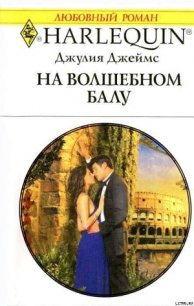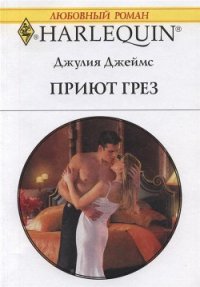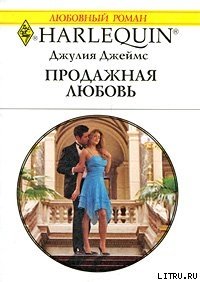Julia Ward Howe - Richards Laura E. (бесплатная регистрация книга TXT) 📗
"Here is the Temple of Victory. Within are the bas-reliefs of the Victories arriving in the hurry of their glorious errands. Something so they tumbled in upon us when Sherman conquered the Carolinas, and Sheridan the Valley of the Shenandoah, when Lee surrendered, and the glad President went to Richmond. One of these Victories is untying her sandal, in token of permanent abiding. Yet all of them have trooped away long since, scared by the hideous havoc of barbarians. And the bas-reliefs, their marble shadows, have all been battered and mutilated into the saddest mockery of their original tradition. The statue of Wingless Victory, that stood in the little temple, has long been absent and unaccounted for. But the only Victory that the Parthenon now can seize or desire is this very Wingless Victory, the triumph of a power that retreats not—the power of Truth.
"I give heed to all that is told me in a dreary and desolate manner. It is true, no doubt,—this was, and this, and this; but what I see is, none the less, emptiness,—the broken eggshell of a civilization which Time has hatched and devoured. And this incapacity to reconstruct the past goes with me through most of my days in Athens. The city is so modern, and its circle so small! The trumpeters who shriek around the Theseum in the morning, the cafe-keeper who taxes you for a chair beneath the shadow of the Olympian columns, the custode who hangs about to see that you do not break the broken marbles further, or carry off their piteous fragments, all of these are significant of modern Greece; but the ruins have nothing to do with it.
"Poor as these relics are, in comparison with what one would wish them to be, they are still priceless. This Greek marble is the noblest in descent; it needs no eulogy. These forms have given the models for a hundred familiar and commonplace works, which caught a little gleam of their glory, squaring to shapeliness some town-house of the West, or Southern bank or church. So well do we know them in the prose of modern design that we are startled at seeing them transfigured in the poetry of their own conception. Poor old age! poor old columns!"
There was a colony of Cretan refugees at Nauplia, another at Argos, both in dire need of food and clothing. The Doctor asked the Government for a steamer, and received the Parados, in which he promptly embarked with wife, daughters, and supplies, and sailed for Nauplia.
The travelling library of this expedition was reduced to "a copy of Machiavelli's 'Principe,' a volume of Muir's 'Greece,' and a Greek phrase-book on Ollendorff's principle." Our mother also took some worsted work, but she suffered such lively torment from the bites of mosquitoes and sand-fleas on her hands and wrists that she could make little use of this. To one recalling the anguish of this visitation, it seems amazing that she could even write in her Journal; indeed, the entries, though tolerably regular, are brief and condensed.
"June 24.... We arrived in the harbor of Nauplia by 7 P.M. ... Crowd in the street. Bandit's head just cut off and brought in. We go to the prefect's house, ... he offers us his roof—sends out for mattresses.... I mad with my mosquito bites. Mattresses on the floor. We women lie down four in a row, very thankfully...."
At the fortress of Nauplia, she was deeply touched by the sight of a band of prisoners waiting, in an inner court, for the death to which they had been condemned.
"'Do not pity them, madam!' said the major; 'they have all done deeds worthy of death.'
"But how not to pity them," she cries, "when they and we are made of the same fragile human stuff, that corrupts so easily to crime, and is always redeemable, if society would only afford the costly process of redemption!
"As I looked at them, I was struck by a feeling of their helplessness. What is there in the world so helpless as a disarmed criminal? No inner armor has he to beat back the rude visiting of society; no secure soul-citadel, where scorn and anger cannot reach him. He has thrown away the jewel of his manhood; human law crushes its empty case. But the final Possessor and Creditor is unseen."
After Nauplia came Argos, where the Cretan refugees were gathered in force. Here the travellers had the great pleasure of helping to clothe the half-naked women and children. Many of the garments had been made by Florence and her young friends in their sewing circle; the book recalls "how the little maidens took off their feathery bonnets and dainty gloves, wielding the heavy implements of cutting, and eagerly adjusting the arms and legs, the gores and gathers! With patient pride the mother trotted off to the bakery, that a few buns might sustain these strenuous little cutters and sewers, whose tongues, however active over the charitable work, talked, we may be sure, no empty nonsense nor unkind gossip. For charity begins indeed at home, in the heart, and, descending to the fingers, rules also the rebellious member whose mischief is often done before it is meditated. At sight of these well-made garments a little swelling of the heart seized us, with the love and pride of remembrance so dear."
The Journal describes briefly the distribution among the Cretans, "some extremely bare and ragged, with suffering little children. Our calico skirts and sacks made a creditable appearance. We gave with as much judgment as the short time permitted. Each name was called by a list, and as they came in we hastily selected garments: the dresses, however, gave out before we had quite finished.... Ungrateful old woman, who wanted a gown and would hardly take a chemise. Meddlesome lady of the neighborhood bringing in her favorites out of order."
Generous as the supplies from America were, they did not begin to meet the demand. After visiting Crete (in spite—perhaps partly because—of the fact that a high price was set on his head) and the various colonies of refugees, the Doctor felt that further aid must be obtained. Accordingly, the journeyings of the little party after leaving Greece were for the most part only less hurried than the earlier ones, the exception being a week of enchantment spent in Venice, awaiting the Doctor, who had been called back to Athens at the moment of departure.
The Journal tells of Verona, Innsbruck, Munich. Then came flying glimpses of Switzerland, with a few days' rest at Geneva, where she had the happiness of meeting her sister once more; finally, Paris and the Exposition of 1867.
After a visit to Napoleon's tomb, she writes: "Spent much of the afternoon in beginning a piece of tapestry after a Pompeiian pattern copied by me on the spot."
Worsted work was an unfailing accompaniment of her journeyings in those days; indeed, until age and weariness came upon her, she never failed to have some piece of work on hand. When her eyes could no longer compass cross-stitch embroidery, she amused herself with knitting, or with "hooking" small rugs.
Her sketchbook was another resource while travelling. She had no special talent for drawing, but took great pleasure in it, and was constantly making pencil sketches of persons and things that interested her. We even find patterns of Pompeiian mosaic or of historic needlework reproduced in the Journal.
From Paris the travellers hurried to Belgium, and after a glance at Brussels, spent several days in Antwerp with great contentment. Both here and in Brussels she had been much interested in the beautiful lace displayed on every hand. She made several modest purchases, not without visitings of conscience.
"I went to the Cathedral.... I saw to-day the Elevation of the Cross [Rubens] to special advantage. As I stood before it, I felt lifted for a moment above the mean and foolish pleasures of shopping, etc., on which I have of late dwelt so largely. The heroic face before me said, 'You cannot have those and these, cannot have Christian elevation with heathen triviality.' That moment showed me what a picture can do. I hope I shall remember it, though I do plead guilty of late to an extraordinary desire for finery of all sorts. It is as if I were going home to play the part of Princess in some great drama, which is not at all likely to be the case."




